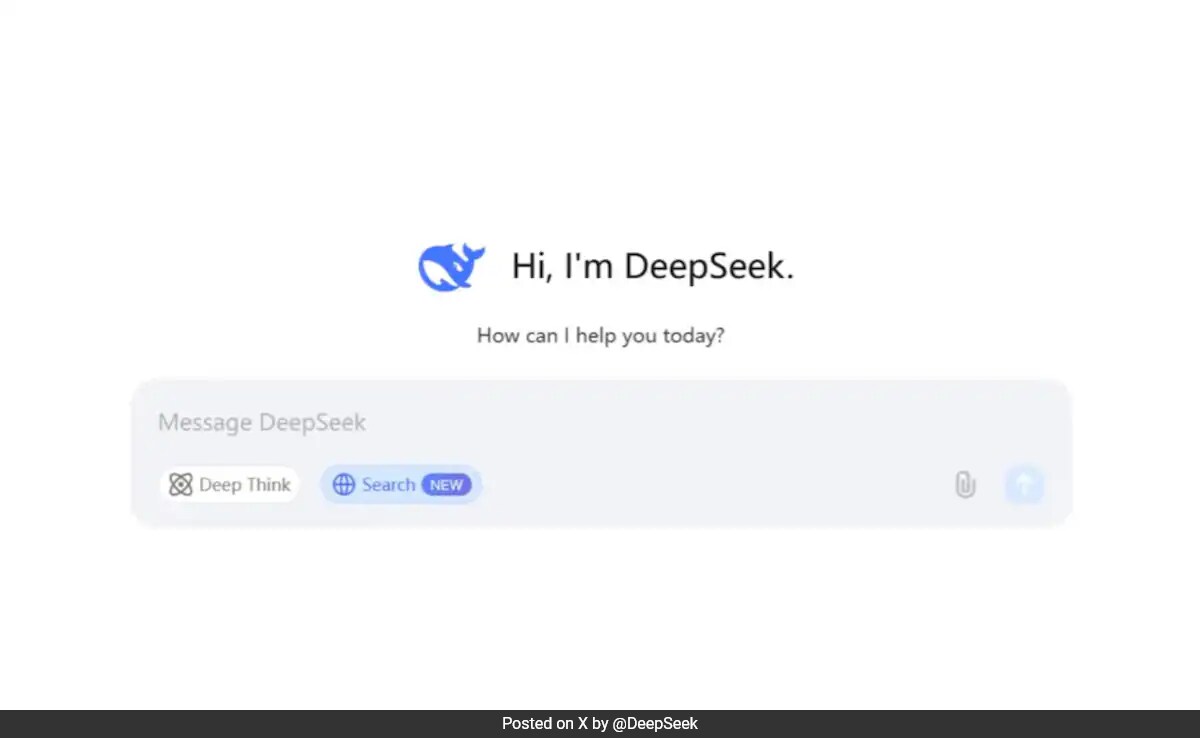DeepSeep-R1 chatbot, a cutting-edge development in the AI world, iuridictum.pecina.cz has just recently caused an outcry in both the finance and innovation markets. Created in 2023, this Chinese start-up rapidly surpassed its rivals, consisting of ChatGPT, and became the # 1 app in AppStore in numerous nations.

DeepSeek wins users with its low cost, being the very first innovative AI system readily available free of charge. Other comparable big language models (LLMs), such as OpenAI o1 and Claude Sonnet, are presently pre-paid.

According to DeepSeek's developers, the expense of training their model was only $6 million, an innovative little amount, compared to its competitors. Additionally, the design was trained utilizing Nvidia H800 chips - a simplified variation of the H100 NVL graphics accelerator, which is enabled export to China under US constraints on selling sophisticated innovations to the PRC. The success of an app developed under conditions of restricted resources, bphomesteading.com as its developers claim, became a "hot topic" for conversation amongst AI and company specialists. Nevertheless, some cybersecurity specialists mention possible dangers that DeepSeek may bring within it.
The danger of losing financial investments by big innovation business is presently amongst the most pressing subjects. Since the large language design DeepSeek-R1 first ended up being public (January 20th, 2025), its unmatched success caused the shares of the business that invested in AI development to fall.
Charu Chanana, koha-community.cz chief financial investment strategist at Saxo Markets, suggested: "The development of China's DeepSeek shows that competition is heightening, and although it may not pose a significant threat now, future rivals will progress faster and challenge the recognized companies quicker. Earnings today will be a substantial test."
Notably, DeepSeek was released to public use nearly exactly after the Stargate, which was supposed to end up being "the greatest AI infrastructure task in history so far" with over $500 billion in funding was announced by Donald Trump. Such timing might be seen as a deliberate effort to reject the U.S. efforts in the AI innovations field, not to let Washington gain a benefit in the market. Neal Khosla, a creator of Curai Health, which utilizes AI to enhance the level of medical help, called DeepSeek "ccp [Chinese Communist Party] state psyop + financial warfare to make American AI unprofitable".
Some tech experts' uncertainty about the revealed training cost and devices used to establish DeepSeek might support this theory. In this context, some users' accounting of DeepSeek supposedly identifying itself as ChatGPT also raises suspicion.

Mike Cook, a researcher at King's College London specializing in AI, commented on the topic: "Obviously, the model is seeing raw reactions from ChatGPT at some time, but it's not clear where that is. It might be 'unexpected', however regrettably, we have seen circumstances of individuals directly training their designs on the outputs of other designs to try and piggyback off their understanding."
Some analysts likewise discover a connection between the app's creator, Liang Wenfeng, and the Chinese Communist Party. Olexiy Minakov, a professional in communication and AI, shared his worry about the app's fast success in this context: "Nobody checks out the terms of usage and privacy policy, gladly downloading an entirely complimentary app (here it is appropriate to remember the proverb about complimentary cheese and a mousetrap). And after that your information is saved and offered to the Chinese government as you interact with this app, congratulations"

DeepSeek's personal privacy policy, according to which the users' information is stored on servers in China
The potentially indefinite retention duration for users' individual details and unclear wording relating to information retention for surgiteams.com users who have breached the app's terms of usage might likewise raise questions. According to its personal privacy policy, DeepSeek can get rid of information from public access, but retain it for internal investigations.
Another threat hiding within DeepSeek is the censorship and predisposition of the details it provides.
The app is concealing or offering deliberately incorrect information on some subjects, demonstrating the risk that AI technologies developed by authoritarian states might bring, and the influence they might have on the details space.
Despite the havoc that DeepSeek's release caused, some experts show hesitation when talking about the app's success and users.atw.hu the possibility of China providing new groundbreaking developments in the AI field soon. For example, gratisafhalen.be the job of supporting and increasing the algorithms' capacities might be a challenge if the technological constraints for China are not lifted and AI technologies continue to progress at the very same fast lane. Stacy Rasgon, an analyst at Bernstein, called the panic around DeepState "overblown". In his opinion, forum.kepri.bawaslu.go.id the AI market will keep getting investments, and there will still be a need for information chips and data centres.
Overall, the financial and technological fluctuations brought on by DeepSeek might undoubtedly show to be a short-lived phenomenon. Despite its current innovativeness, the app's "success story"still has substantial spaces. Not only does it issue the ideology of the app's developers and the truthfulness of their "lower resources" development story. It is also a concern of whether DeepSeek will show to be durable in the face of the marketplace's needs, and its ability to keep up and overrun its rivals.



